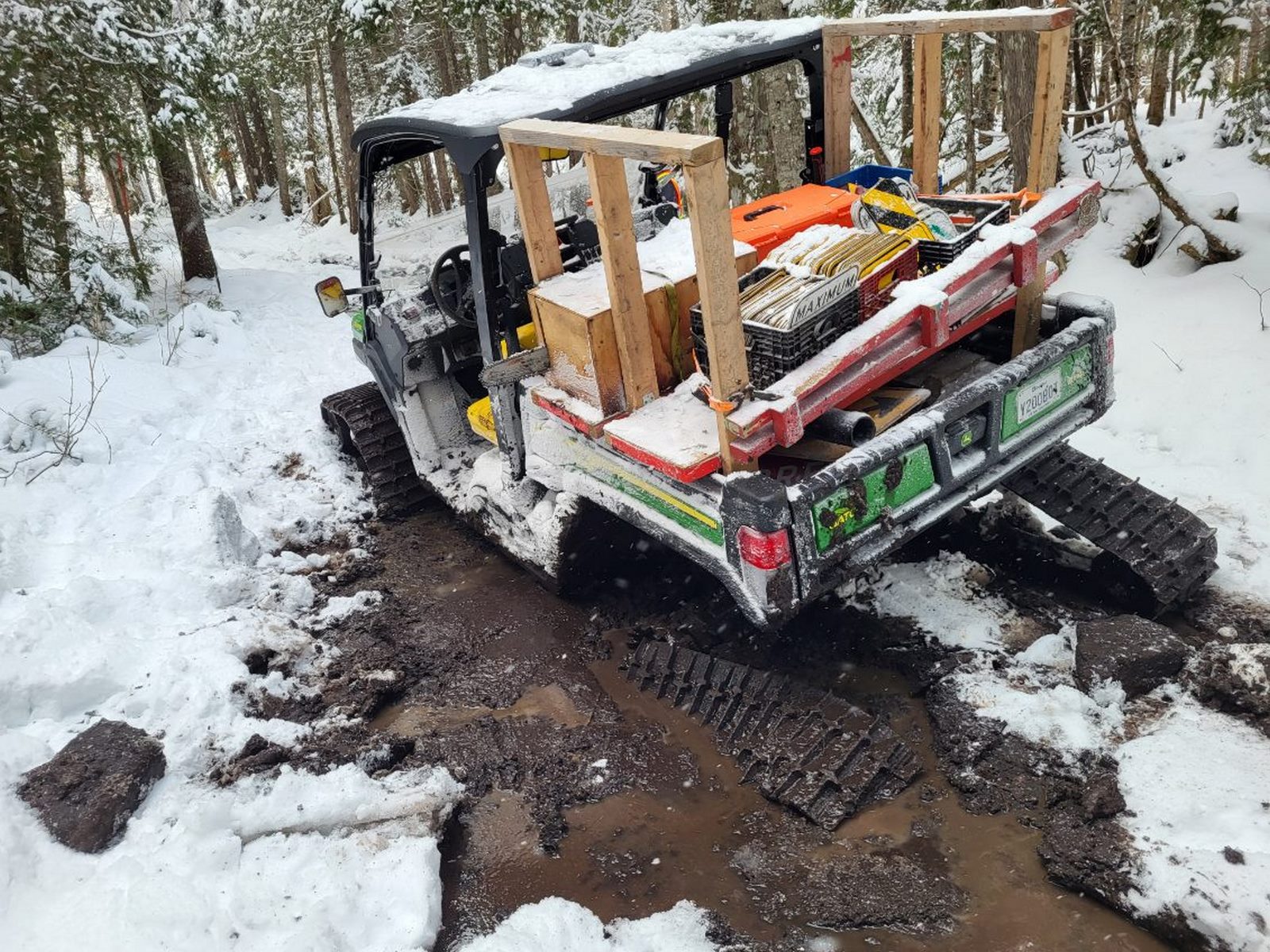Table of contents
ToggleI want to address a very serious issue today: the importance of respecting snowmobile trail closures at the end of the season. These closures, indicated on the interactive map of the Fédération des clubs de motoneigistes du Québec (FCMQ), must not be ignored. They are put in place for your safety, the preservation of the environment, and the protection of fragile rights of passage. This last point costs us dearly every year.
Let’s Clarify Everything.
Firstly, it’s important to understand that the FCMQ is not responsible for trail closures, but rather the clubs. The federation and its employees are not involved in this decision-making process. It’s the clubs that decide when to open or close the trails. No, they’re not abandoning us. They don’t control Mother Nature! They simply work with what they have to make the trails safe and acceptable. Let’s be respectful of the trails, as well as the volunteers from our clubs.
The decision to close the trails this year was primarily due to weather conditions. Mild temperatures led to rapid snowmelt, making riding dangerous and detrimental to the trails. It’s essential to respect these decisions to avoid damaging the trails and to ensure everyone’s safety. We can’t control the weather, much as we wish we could. So, let’s be responsible and not ride on closed trails.
The different clubs closed the trails this year because it’s too warm! Yes, you read that right, too warm for snowmobiling in the middle of February and March. It seems like climate change is really starting to hit close to home. But my intention isn’t to start a debate about it, even though I mention it often in my articles.
Let’s Be Responsible.
As a trail surveillance agent for a local ATV club, I want to emphasize the importance of respect, common sense, and safety. Riding on closed trails can not only cause irreversible environmental damage but also endanger the lives of snowmobilers and other users.
It’s crucial to remember that disregarding guidelines and laws can result in the termination of often fragile rights of passage. Let’s be respectful. These rights of passage should not be taken for granted. Indeed, they can be revoked at any time by the landowners. Disregarding signage and damaging the land can have real long-term consequences for the entire trail network.
To respect trail closures, follow the instructions of local clubs, check weather bulletins, and use common sense. If you encounter a red sign, turn around and find another open trail.
At the end of the season, as snow melts and the ground becomes more fragile, riding on closed trails can cause irreversible damage to vegetation, wildlife, and waterways. Not to mention, you’re putting your safety and the safety of others at risk. Imagine falling into a water hole or hitting a tree hidden under the snow. Not very fun, right? Rocks, debris, remnants of winter that melt poorly and refreeze. None of that is for us!
So, let’s be responsible and wait until next year to enjoy the beautiful snowy landscapes of Quebec. In the meantime, we can always console ourselves by reading articles on the subject. Sledmagazine.com offers you precisely this opportunity. I highly recommend my other columns as well (wink).
Let’s Be Cautious.
It’s also very important to always ensure that someone knows when you’re leaving, where you’re going, and approximately when you’re supposed to return, especially towards the end of the season when the weather and conditions are unpredictable. Let’s also try to avoid bodies of water. Currently, most of them are dangerous.
The interactive map of the FCMQ is an online tool that allows snowmobilers to plan their rides on Quebec’s trails. The map displays information about trail conditions, available services, points of interest, weather conditions, and safety alerts. It even indicates the last time the groomer passed by.
The map is updated daily by snowmobile clubs and volunteers of the FCMQ. The interactive map is accessible on the Federation’s website or through the iMotoneige mobile application.
You can also check the Facebook pages of various clubs for even more details on trail openings and closures in Quebec. Clubs are usually quite transparent at this level and share this information as quickly as possible.
Even More Caution!
Let’s not forget that snowmobiling on a lake towards the end of the season can be very dangerous, even deadly. The ice can be weakened by rising temperatures and break under the weight of your machine. You could then fall into the icy water and drown or suffer from hypothermia.
Moreover, you could damage your snowmobile and pollute the environment. Not to mention that you could be penalized by authorities if you break the rules. It is therefore strongly advised not to ride your snowmobile on a lake at the end of the season.
In conclusion, by respecting trail closures, you contribute to preserving our regions and ensuring the sustainability of our leisure activity. Let’s be responsible and respectful snowmobilers, and let’s all make sure to meet again next year to enjoy our beautiful snowy landscapes together.
I would like to dedicate this article to the memory of the French tourists who passed away in Lac-Saint-Jean on January 19, 2020. May their deaths never be forgotten.


